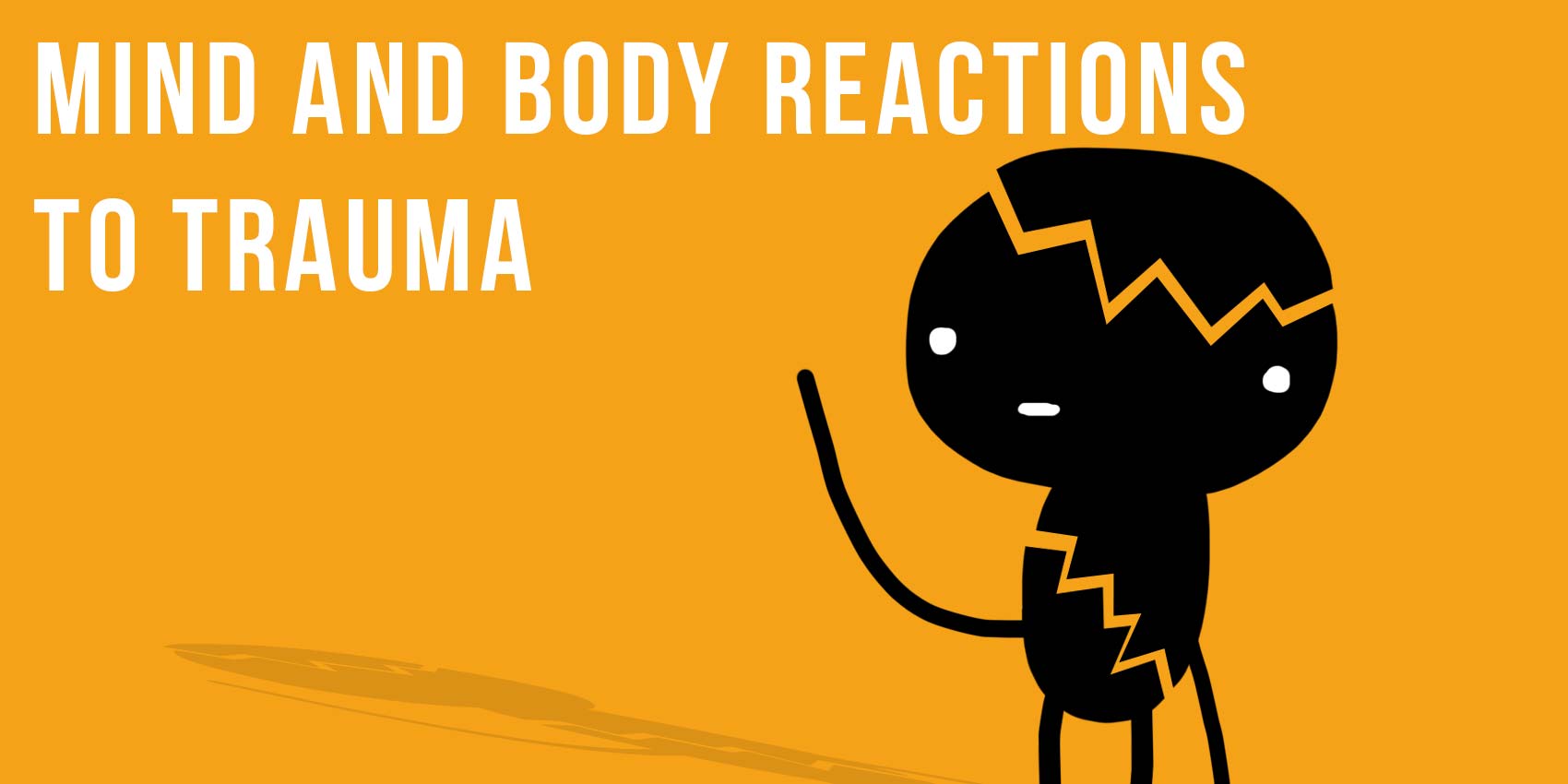27 Feb Mind and body reactions to trauma

Trauma is an event (including repeated events) that injures you physically and psychologically. Here’s the process:
1 Trauma happens.
2 Our body and mind react.
3 Our lives shift.
The mind and body react to trauma in two different ways to ensure survival:
1. Hyper-arousal (also called “fight or flight”) is when your body becomes “hyped up” to deal with the situation. You become super prepared to react.
Your body begins to pump adrenaline, cortisol and other hormones that make you ready to act. Together they make your muscles tense up (ready for action), your digestion slow down (because you don’t need that right now), and your heart beat faster (so you can move into action).
2. Dissociation (also called “freeze and surrender”) is when your mind takes over for survival and your body shuts down. This happens when you really can’t run away or fight (or you can’t fight anymore). This is a psychological survival mechanism. You actually disengage your mind from what is happening. Some people refer to it as floating above the situation to not feel part of it. Others report feeling elsewhere altogether, like in a dream.
Your body/mind connection is truly amazing. Your brain will choose which reaction it needs according to the situation to keep your SELF as safe as possible; your mind and body automatically adapt to the situation for your survival.
However, the initial trauma will continue to play out in your mind and body and thus, your reaction can continue well beyond the event. With trauma, people can continue to be hyper-aroused or disassociated when the event is over and their survival is not in danger. This is why people need help when they have experienced trauma – it doesn’t just go away on its own.
Here are some physical symptoms that may occur after the trauma is over:
difficulty sleeping
nightmares
fatigue
concentration problems
aches and pains
muscle tension
being startled easily
Here are some of the psychological symptoms associated with trauma:
anger
fear and anxiety
irritability
mood swings
guilt and/or shame
disbelief
grief
numbness
depression
hopelessness
All of these symptoms are normal after a traumatic event. If you recently experienced a traumatic event and you can relate to the list above, that is because your body and mind are processing the event. And that’s normal. And there’s no set time for processing a traumatic event. Everyone is different. But, if months and months have passed and you are still severely impacted by the event, you may wish to seek help from an expert. Signs that some expert help might be in order are:
Unable to connect with people
Staying at home
Severe anxiety or depression
Avoiding situations that remind you of the event
Having trouble getting through your day
Using alcohol or drugs to manage your fear and pain
Bottom line: if trauma is interfering with your life and reducing the quality of your life, you may wish to seek help. Tell your parents, a trusted adult or your doctor that you are struggling so that you obtain the right care.




WLKHS 2118
Posted at 22:52h, 01 MarchI think that there are multiple people I know who possibly have trauma, but I’m not completely sure. Those people were affected in ways such as having mental health problems, which seems like the most prominent trait they exhibit.